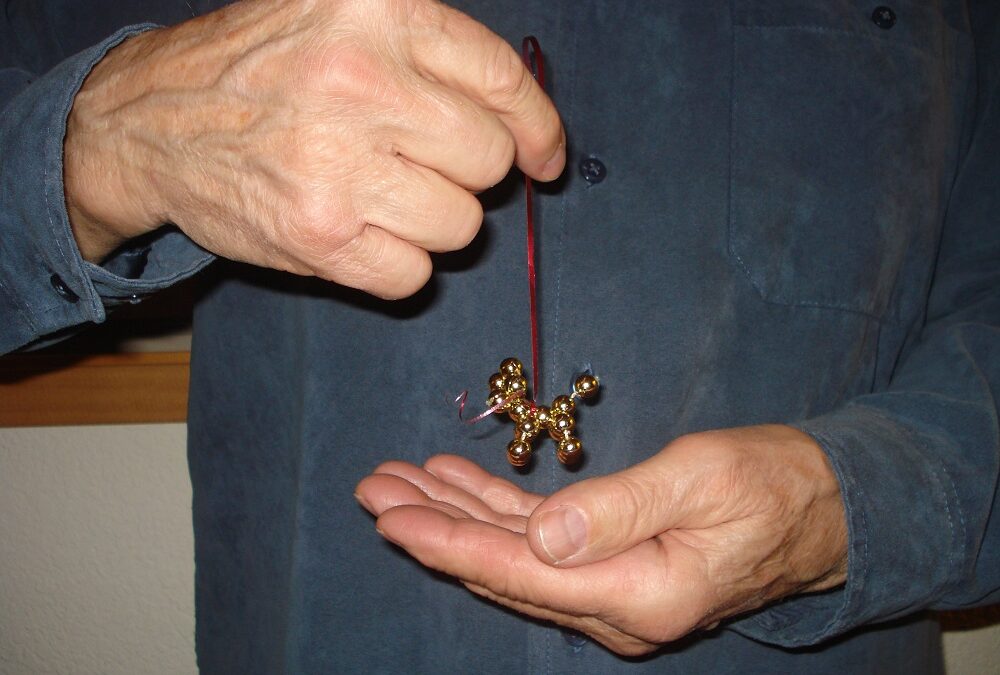
18. Be Assertive to Be Mentally Fit
This picture shows that somebody wanted to create a unique statement at the beach. He or she thought about what to sculpt and carefully formed this octopus of damp sand. To make it more visible, the sculptor laid out seaweed to contrast with its arms. Now we can readily see this remarkable design. Social skills like assertiveness also require this kind of focus, caring and creative problem-solving. You just can’t fill a bucket with sand and dump it out. Your Adult needs to set goals, study what they’ll require and then work with your Child and Parent parts to develop and express your new skills.
In the early 1970s when I was in graduate school at the University of Iowa, the Women’s Movement rolled through. I sewed curtains for the new women’s center and then helped develop assertion training groups. These groups began because it was felt that, due to being treated as “less than” men, women lacked the skills and attitudes they needed to succeed in their work and enjoy healthy relationships.
You must be assertive to be mentally fit. Whether you’re a man or woman, you must be assertive to experience the social confidence and self-respect mental fitness brings. If not, others won’t fully open up to you because they can tell you’re not really open with them. Do you make a sarcastic joke at their expense? Do you pretend to be happy with them and then blow up occasionally? Do you vent your hurt and anger to others, thinking your comments won’t get back to the person you were afraid to confront? Do you usually withdraw and avoid real friendship because it’s just too hurtful and disappointing? In Claim Your Own Mental Fitness, Chapter 1, Part III, Friendship Holds the Keys, I describe in detail how being assertive opens the door for you to enjoy trust and harmony in your relationships.
As the sand sculptor formed the octopus, you can create within you the skills to be assertive. Using the FORMULA, your Adult must tune in to your Child’s anxiety and, with your Wise Parent, convince your Child that it does not need to go into fight-or-flight if another person gets angry or even dumps you. Because early human survival depended on social cooperation, social rejection became a trigger for fight-or-flight. The first time I decided to confront a person I really depended on for friendship (at about age thirty-one), I felt nauseous, my heart raced and my brain felt like spaghetti.
Here’s how I prepared myself. First, I re-read sections of Manuel Smith’s book, When I Say No, I Feel Guilty, where his students offer dialogue examples of how to talk assertively, not aggressively. I practiced what I could say in several variations of how the conversation might go. Once I had that down, my Adult worked on my toxic beliefs. (#1) No, I don’t need this friend’s approval or even her friendship, I just want it, my body can stay out of it.(#3) This friend is kind and fair-minded, she probably won’t blame or punish me for asking her to respond to my concern. (#9) No, it’s not more comfortable to avoid this conversation and keep getting privately upset with her. Finally, it’s not a black-and-white, either-or thing, that she’ll either be fine with this or reject me totally. Just because I’m uncertain and anxious doesn’t mean I can’t take this non-life-threatening risk to improve our friendship.
It was still very scary for me to gently open the topic I needed to discuss, and my body was still in take-off mode. My friend and I easily came to an understanding and I was launched on my assertive path. Consider the things you already care for thoughtfully: your home, your appearance, your crafts, your family, your career skills. This same kind of attention and persistence will also bring you the assertiveness you need to be mentally fit and the deeply rewarding relationships it makes possible.

